So what has driven all the activity in the last 12 months?
The drivers behind the sale of Northern Foods' Ski and Munch Bunch brands, and Uniq's branded yogurts and spreads are pretty simple, say analysts. "Uniq's position in yogurts was not sustainable," says Merril Lynch's Nick Sochovsky. "It's an own label company without the clout to get the best out of the brands it has." Moreover, Shape had been losing money and Uniq had to make disposals to reduce its debts.
While Ski has been performing better than Shape, Northern Foods could see it had greater potential in the stable of a big branded player like Nestle said West LB Panmure's John Elston. "Once the big branded boys decide they want to major on something, you can't compete with that. Besides, Northern got a handsome price."
Danone's purchase of Shape was more of a shock, as Nestle was the clear favourite, but Uniq got a good price and finally offloaded a brand that was going nowhere without serious cash behind it.
The motivation behind the shock tie-up between arch rivals New Zealand Milk and Arla Foods was less obvious, although the combined clout of Lurpak and Anchor will make the new company a strong number two in yellow fats to Unilever Bestfoods.
It is too early to assess the impact, although it was probably at the back of Uniq ceo Bill Ronald's mind when he decided to leave branded spreads to the big boys and put Utterly Butterly and Vitalite on the market. Likewise, the new clout of Arla Foods Fonterra will put pressure on Dairy Crest to consolidate its position in spreads, making it the most likely candidate to swoop in on Utterly Butterly, say analysts.
On the liquid milk front, industry sources reckon a showdown could come in the autumn, when farmgate prices are widely expected to go up again. Although Express Dairies was the subject of a takeover approach in February, the pressure on the company has eased in recent months, ironically because of its exposure to doorstep milk, a market in terminal decline.
Doorstep prices have held firm as farmgate prices have dropped. This gave Express breathing space and better profits, while rivals with a bigger presence in supermarket milk claim a good proportion of the 3.25p taken off farmers since April has gone right back to their retail customers. Secondly, Express' debts have been substantially reduced through the sale of its UHT business to Milk Link and the Durham liquid milk business to Associated Co-operative Creameries.
However, as commodity markets stabilise, bulk cream prices firm up, the euro strengthens and the seasonal decline in production kicks in, higher farmgate prices will put the pressure back on processors, says Investec analyst Michael Landymore. "One of the big four has got to cry uncle, or it will be a slow and painful death."
Arla has already walked away from a deal with Express and Dairy Crest cannot buy anything substantial for competition reasons. Unless Wiseman makes a move, unlikely at the moment, the most likely deal is with one of the farmer co-ops jumping on the processing bandwagon.
Farmers are intent on taking control further down the supply chain, with Dairy Farmers of Britain and Express Milk Partnership raising cash for a processing joint venture or acquisition, and Milk Link hoovering up UHT plants and teaming up with Express to make added value products.
Milk Link now claims to have 54% of the UHT market and 32% of the retail cream market after buying the long life milk businesses of Tanners and Express. It is also slashing milk collection costs through joint haulage arrangements with Express.
Getting into processing is "not about going to retailers and saying prices have to go up," says Milk Link membership director Mark Brooking  it's about ensuring profits from processing go back to members and securing markets for their raw milk as well as driving innovation with new products.
None of this takes capacity out of the market, however, and the pressure for further consolidation is as strong as ever, say analysts. "With their superior facilities, Wiseman and Dairy Crest look best placed to pick up the 100 million litres or so of new retail liquid milk business up for grabs each year. But Arla and Express will continue to struggle. There's at least another round of consolidation to go."
{{Z SUPPLEMENTS }}
The drivers behind the sale of Northern Foods' Ski and Munch Bunch brands, and Uniq's branded yogurts and spreads are pretty simple, say analysts. "Uniq's position in yogurts was not sustainable," says Merril Lynch's Nick Sochovsky. "It's an own label company without the clout to get the best out of the brands it has." Moreover, Shape had been losing money and Uniq had to make disposals to reduce its debts.
While Ski has been performing better than Shape, Northern Foods could see it had greater potential in the stable of a big branded player like Nestle said West LB Panmure's John Elston. "Once the big branded boys decide they want to major on something, you can't compete with that. Besides, Northern got a handsome price."
Danone's purchase of Shape was more of a shock, as Nestle was the clear favourite, but Uniq got a good price and finally offloaded a brand that was going nowhere without serious cash behind it.
The motivation behind the shock tie-up between arch rivals New Zealand Milk and Arla Foods was less obvious, although the combined clout of Lurpak and Anchor will make the new company a strong number two in yellow fats to Unilever Bestfoods.
It is too early to assess the impact, although it was probably at the back of Uniq ceo Bill Ronald's mind when he decided to leave branded spreads to the big boys and put Utterly Butterly and Vitalite on the market. Likewise, the new clout of Arla Foods Fonterra will put pressure on Dairy Crest to consolidate its position in spreads, making it the most likely candidate to swoop in on Utterly Butterly, say analysts.
On the liquid milk front, industry sources reckon a showdown could come in the autumn, when farmgate prices are widely expected to go up again. Although Express Dairies was the subject of a takeover approach in February, the pressure on the company has eased in recent months, ironically because of its exposure to doorstep milk, a market in terminal decline.
Doorstep prices have held firm as farmgate prices have dropped. This gave Express breathing space and better profits, while rivals with a bigger presence in supermarket milk claim a good proportion of the 3.25p taken off farmers since April has gone right back to their retail customers. Secondly, Express' debts have been substantially reduced through the sale of its UHT business to Milk Link and the Durham liquid milk business to Associated Co-operative Creameries.
However, as commodity markets stabilise, bulk cream prices firm up, the euro strengthens and the seasonal decline in production kicks in, higher farmgate prices will put the pressure back on processors, says Investec analyst Michael Landymore. "One of the big four has got to cry uncle, or it will be a slow and painful death."
Arla has already walked away from a deal with Express and Dairy Crest cannot buy anything substantial for competition reasons. Unless Wiseman makes a move, unlikely at the moment, the most likely deal is with one of the farmer co-ops jumping on the processing bandwagon.
Farmers are intent on taking control further down the supply chain, with Dairy Farmers of Britain and Express Milk Partnership raising cash for a processing joint venture or acquisition, and Milk Link hoovering up UHT plants and teaming up with Express to make added value products.
Milk Link now claims to have 54% of the UHT market and 32% of the retail cream market after buying the long life milk businesses of Tanners and Express. It is also slashing milk collection costs through joint haulage arrangements with Express.
Getting into processing is "not about going to retailers and saying prices have to go up," says Milk Link membership director Mark Brooking  it's about ensuring profits from processing go back to members and securing markets for their raw milk as well as driving innovation with new products.
None of this takes capacity out of the market, however, and the pressure for further consolidation is as strong as ever, say analysts. "With their superior facilities, Wiseman and Dairy Crest look best placed to pick up the 100 million litres or so of new retail liquid milk business up for grabs each year. But Arla and Express will continue to struggle. There's at least another round of consolidation to go."
{{Z SUPPLEMENTS }}







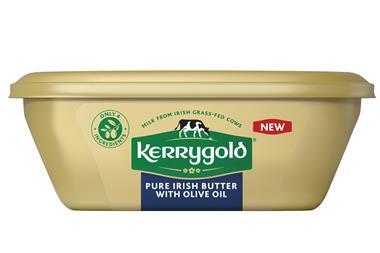



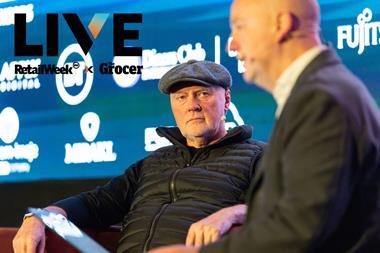
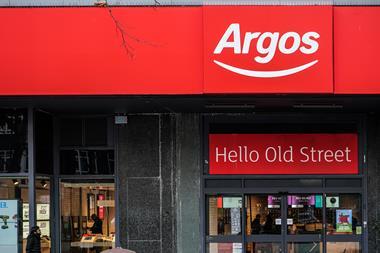
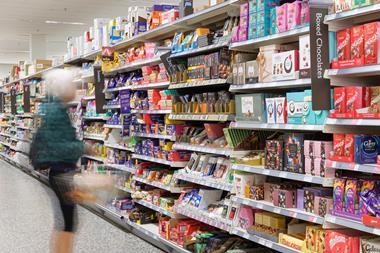
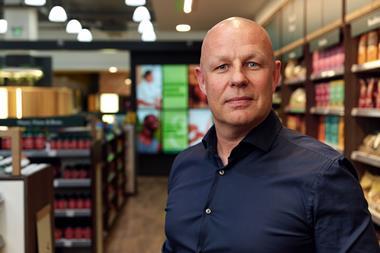
No comments yet